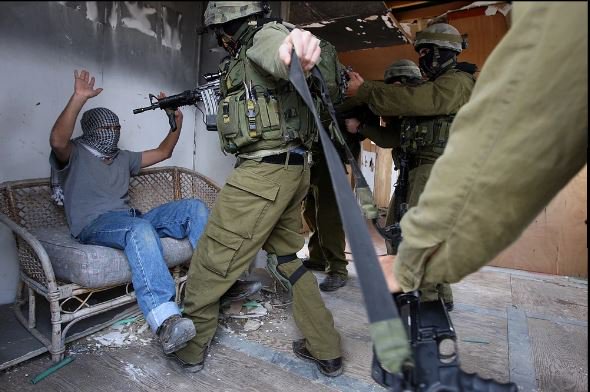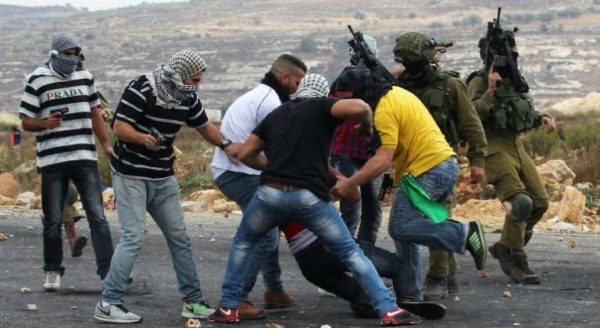The Israelis are no strangers to the counter-terrorist world of Special Operations. They arguably have the most experience in that they have been dealing with counter-terror issues in and around their own country for decades. They have developed several Special Operations units that integrated with their conventional troops, the Israeli Defense Forces (IDF) and each has a specific function.
These units can all operate independently or in conjunction with each other as well as with the IDF. Remember #5 of SOF Truths? Most Special Operations require non-SOF assistance. And one of the best units of its kind in the highly classified and secretive Duvdevan unit.
The Duvdevan (Hebrew meaning cherry) is a counter-terror unit as part of the Commando Brigade. The cherry moniker comes from the belief that the cream always rises to the top, as in Special Operations. And the only thing that goes on top of the cream is a cherry.
Duvdevan is tasked with conducting undercover operations in urban areas, during which they will often wear Arab civilian clothes as a disguise. They are also known to be trained in human and mechanical counter-surveillance. Unlike other special forces units, they can operate independently in more than one place at a time. The unit performs many high-risk and complicated operations, including targeted assassination, kidnappings, and a range of other classified undercover operations in Arab areas.
This unit was thrust into the limelight by the outstanding Israeli television series “Fauda” which translates to riot or chaos in English. Fauda can be seen on Netflix and deals with a Duvdevan unit commanded by Doron Kavillio. The intense political thriller/action series follows the unit on many Special Operations across the border into Palestinian territory as they target terrorist cells and leaders.
The air of authenticity lent to Fauda was apparent when it was learned that two of the principal writers as well as the main character Doron, played by Lior Raz, were members of a Duvdevan unit and the actions depicted in the series were based on true events that they experienced. One of the other principal actors, Tzachi Halevy, who plays Doron’s antagonist Naor in the unit and the series was also a member of Duvdevan and another Special Forces unit (Samson) that works undercover in Arab territories conducting special operations against Palestinian militants.
So who are the Duvdevan and when did they first organize?
Duvdevan Is First Organized in the First Intifada:
During the first intifada in 1987, Israel was using typical Special Operations tactics in Gaza, the West Bank and Jerusalem. The IDF soon learned, however, that the tactics were ineffective to the threat that they were facing. The leaders of the IDF decided that they needed a new undercover (Mistaravim) unit was needed. One that could go undercover in Palestinian held territory and deploy as a true CT (counter-terrorism) unit.
The initial group of Duvdevan commandos came from S-13, the Israeli equivalent to U.S.Navy SEAL teams, why they use an anchor as part of the design of their unit patch. They operated for 15 years until 2002 when they made wholesale changes in the unit, and their tactics because of the changing nature of the threat they face.
One member of the unit, Garrett Machine, is an American by birth, and a graduate of the University of Florida. He moved to Israel, joined the IDF and became a member of the Duvdevan. In an interview he conducted with Realfighting.com, he outlined the changes that took place in 2002.
- The unit basic training was relocated to the paratroopers base – it used to be held independently at the Adam base along with rescue Unit 669 and Oketz (dog handling unit). After 2 soldiers died in training, basic training was delegated to the infantry. Basic training is 7 months long and is done with the Tzanchanim (paratroopers).
- Special units within Duvdevan were formed but remain classified.
3. The unit’s base was relocated and newly built. It now stands alone and independently in a secret location. Unlike Duvdevan – most IDF units have their base within a larger base.
4. Finally, the selection process to enter the unit and start the year and a half training process was changed from an independent secret selection process to a two-phase motivation test.
Selection Process and Unit Mission:
Machine also in the interview spelled out how the Selection process works for the unit.
The first test when candidates are still civilians lasts 24 hours, the second test lasts 5 days after the men are drafted into the army, followed by interviews.
The IDF holds what it calls “Special Forces Day” where potential candidates for the Special Forces units are screened prior to drafting for potential suitability for the units. Twice a year, the IDF will select potential recruits based on their medical, fitness, and intelligence scores receive an invitation for the first round of testing.
From the IDF website: “They’re examined on their strength, their physical and mental endurance, and their skills in teamwork and cooperation. Their tasks include everything from sprints to mental exercises. Commanders monitor the selected soldiers to assure they can handle both the physical and emotional strain of these units’ demanding activities.”
“ Candidates who pass are invited to further rounds of specialized testing for one or more of the IDF special forces units: Sayeret Matkal, Shaldag (IAF commando unit), Naval Officers, 669 (IAF’s combat emergency rescue unit), Shayetet 13 (sea-to-land operations), and the submariners. The number of draftees that make it past this phase is slim; for example, only one-third of the candidates successfully pass the first stage of tryouts for Sayeret Matkal. Those who make it to the unit are tasked with intelligence-gathering, counter-terrorism, and hostage rescue, just as they did in the famed Operation Thunderbolt.”
Machine said that “Duvdevan is a special forces unit within the Israeli Defense Forces, directly subordinate to the West Bank Division. Duvdevan is particularly noted for conducting undercover operations against Palestinian militants in urban areas within the PA-controlled West Bank. During these operations, Duvdevan soldiers typically drive modified civilian vehicles and wear Arab civilian clothes as a disguise. The unit can perform high-risk arrests, raids, targeted assassination, kidnappings and a range of other urban warfare operations.”
“The unit is unique in several ways: it is the only IDF unit (not including police units) that has no wartime mission, just day-to-day hit and run operations. In addition, the unit, unlike other SF units, can operate in more than one place at once and can operate independently. This means providing its own intelligence, backup, rescue, medical teams, extraction, snipers, demolitions, etc.”
He added that the training process includes two months of basic training, which focuses on advanced urban navigation exercises, geographical locations and getting from point to point where navigation without the use of a GPS is vital. For the unit, being able to navigate among the maze of urban streets is vital for their mission.
During CT training, a premium is placed on hand-to-hand fighting using the Krav Maga fighting system. The six-week CT course is conducted at the IDF Counter Terror Warfare School in Mitkan Adam base.
After that, candidates receive another one month advanced inner-unit CT training with the unit’s own instructors. There, the training is geared toward guerrilla warfare. Only then, when the unit is confident in the trainee’s prowess as a CT operator will he begin a 4-month Mistaravim (undercover training) course, where the candidates learn about their cover while in enemy territory. As Machine points out that will entail everything from learning the Arabic traditions, Arabic language and their way of thinking, to civilian camouflage (hair dying, contact lenses, Arab clothing etc).
Operators can also attend other specialized courses, most of them a month in duration for specific advanced skills – sniper, medic, demolitions, driving, and different instructors courses.
The IDF has some of the best Special Operations units in the world, and their Duvdevan, the cherry on top, is arguably the best of their best.
Photos: IDF











COMMENTS